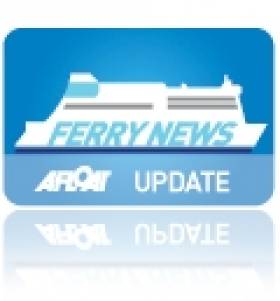Displaying items by tag: New Sailing Schedule 2014
Celtic Link Ferries to Launch Improved Sailing Schedule for 2014
#ImprovedSchedule - Celtic Link Ferries Rosslare-Cherbourg route vessel, Celtic Horizon is to launch an improved sailing schedule in 2014, following a period of maintenance at Swansea Drydocks, writes Jehan Ashmore.
Currently the 27,522 tonnes ro-pax ferry is docked at the South Wales ship repair and recycling facility and is due to return to the Rosslare-Cherbourg route sometime between 11 and 14 January 2014. When the 1,000 passenger capacity vessel resumes service, the revised sailing schedule is to bring a more customer friendly schedule.
Celtic Link Ferries will now arrive and sail earlier on the weekend sailings. The improved sailing times will now provide customers to arrive earlier in port for the onward destination in France or Ireland.
"Celtic Link Ferries wants to give its passengers more opportunity to drive during delight hours at the weekend" said the company's Tourist Passenger Manager, Rory McCall.
"The most commonly issued request from our customers is to arrive and to sail earlier between Ireland and France, now we will do that".
Celtic Horizon will now sail at 21:00 on Friday night (local time) from Cherbourg, at 16:00 from Rosslare on Saturday and at 16:00 (local time) from France on Sunday.
The low-fares Irish owned ferry company will continue to operate more direct sailings between Ireland and France than any other company sailing on the direct services to the continent.






























































